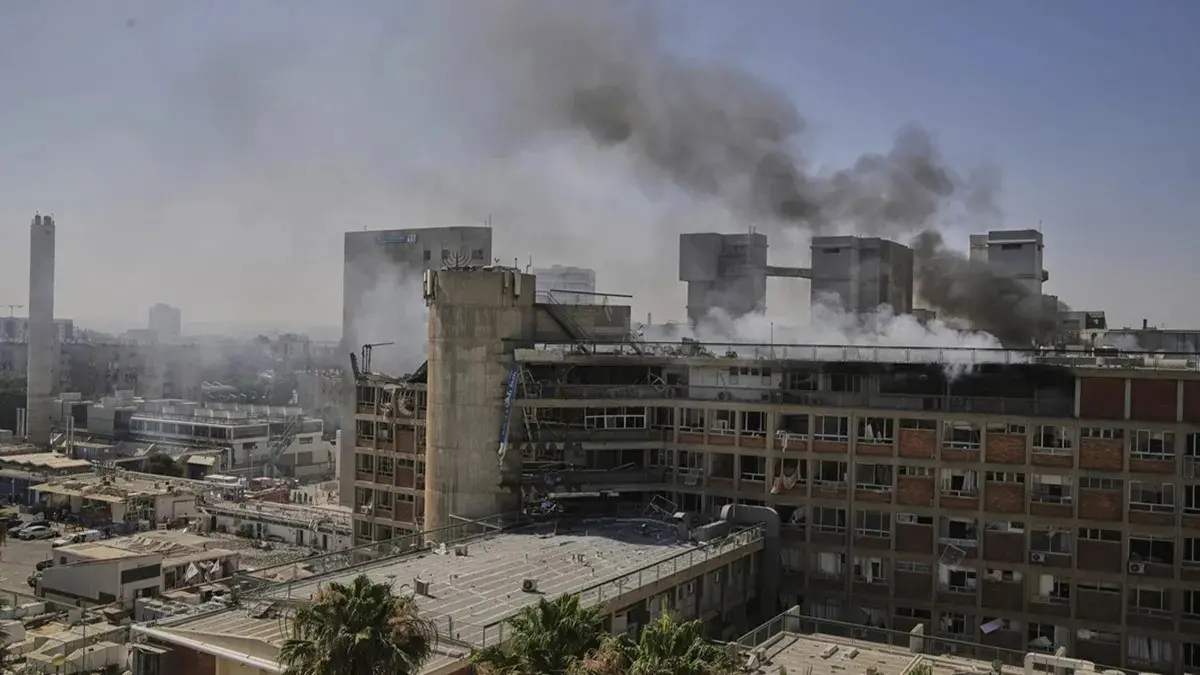Updated 22 June 2025 at 21:24 IST
‘We Have Other Goals’: Israel Signals More Strikes Inside Iran After US Bombs Nuke Sites
Iran's Islamic Revolutionary Guard Corps warned the US of regrettable responses to its assaults on Tehran's nuclear sites. The Israeli army stated it would continue its attacks due to other objectives in Iran.
- World News
- 4 min read

Iran-Israel Conflict: In a statement broadcast on state television, Iran's Islamic Revolutionary Guard Corps warned the United States to "expect regrettable responses" to its assaults on Tehran's nuclear sites on Sunday.
Meanwhile, the Israeli Army declared it would continue its attacks because it had other objectives in the nation. The Israeli Army said that it has "other goals" in Iran and planned to continue its military onslaught.
"We have other goals, and we will keep working until we achieve them," Army spokesman Effie Defrin told reporters at a televised press conference.
When asked if Iran had removed enriched uranium from Fordow or buried it under rubble, Army spokesman Effie Defrin said, "We are constantly monitoring the situation." It is too soon to say. “I suppose we will find out later.”
Advertisement
US Strikes Iranian Nuke Sites
Earlier the United States launched strikes on three major Iranian nuclear sites: Fordow, Natanz, and Isfahan. President Donald Trump described the attack as “very successful,” confirming that all American aircraft returned safely.
Fordow, hidden under a mountain near Qom, housed 3,000 centrifuges and was difficult to reach due to its depth. Natanz was Iran’s primary uranium enrichment site, and Isfahan hosted a uranium conversion and fuel fabrication facility.
Advertisement
Although Trump didn’t confirm the weapons used, the GBU-57 “Massive Ordnance Penetrator” was likely deployed against Fordow. This bunker-buster can penetrate up to 200 feet underground and is typically carried by the B-2 Spirit bomber.
Several B-2 bombers reportedly flew from Missouri ahead of the strikes. These long-range stealth aircraft are designed to reach well-defended targets and have a history of use in Kosovo, Afghanistan, and Iraq.
Trump urged Iran to seek peace, but it remains unclear whether Tehran will deescalate or retaliate.
Iran's Parliament Approves Closure Of Strait Of Hormuz
In response to the US strikes on nuclear sites, Iran's parliament, the Majlis, has approved a measure to close the strategically vital Strait of Hormuz, a narrow waterway connecting the Persian Gulf to the Arabian Sea and the Indian Ocean. The said waterway is one of the world's most critical chokepoints, with nearly 20% of the world's oil and gas supply flowing through this strait, making it a crucial artery for global energy trade.
Experts suggested that the closure of the Strait of Hormuz would have far-reaching consequences for the global economy. According to top intelligence sources, it would possibly push a global recession, likely worse than the 1973 oil crisis. The strait is responsible for transporting around 20-25% of the world's oil and 30% of global LNG trade. In global context, countries like Saudi Arabia, Iraq, Iran, the UAE, and Kuwait rely heavily on this route to transport crude and gas exports to global markets.
What The Closure Means For Global Energy Markets
Iran's decision to close of the Strait of Hormuz has raised concerns among the global energy markets. Notably, brent crude prices have surged over 9% in anticipation of heightened instability in the region, touching levels not seen since late 2022. The experts believed that the impact would be felt across the globe, with countries like India, China, Japan, and South Korea being particularly affected due to their heavy reliance on oil imports through the strait.
India, which imports around 90% of its crude oil, is particularly vulnerable to any disruption in the Strait of Hormuz. Around 40% of India's crude oil imports and over 50% of its LNG imports flow through this route. The closure would drive oil prices up, cause inflation, and impact India's GDP. However, India has diversified its sources of imports, and alternative suppliers like Russia could help mitigate the impact.
Iran's Dilemma Over Decision
Though the Iranian parliament has approved the measure to close the Strait of Hormuz, the final decision rests with the country's Supreme National Security Council. Iran's security body will now deliberate on whether to proceed with the plan. The experts also pointed that the closing the strait would not only harm Iran's rivals but also its own economy, as around 90% of its oil exports move through Hormuz. Iran's self-destructive move could lead to economic collapse and further isolate the country.
Meanwhile, the countries globally have urged restraint calling for a return to diplomacy amid escalating tensions in the Middle East with the US deciding to involve in the Israel-Iran conflict directly. The US has declined to comment on the parliamentary vote but has stated that it is monitoring the situation closely and has taken steps to ensure the continued free flow of commerce in the region.
Published By : Shruti Sneha
Published On: 22 June 2025 at 17:11 IST
